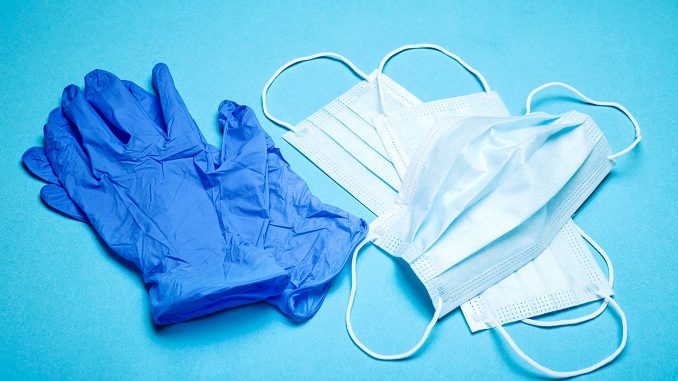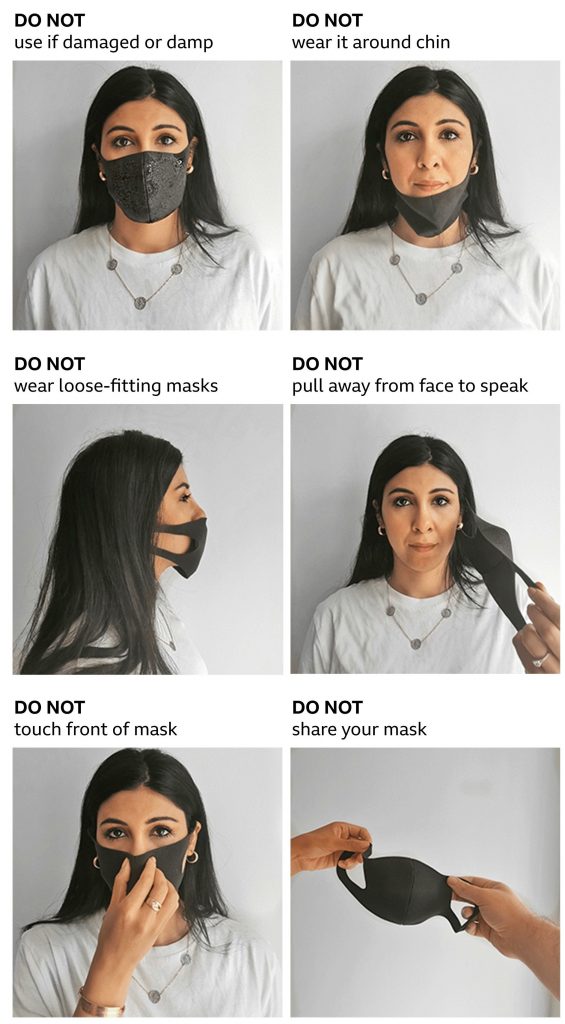
How not to wear a face covering or mask
The coronavirus is here for the long haul! The future will depend on social mixing and the prevention that we have in place and how we comply with that.
Wash your hands often – if soap and water are not readily available, use a hand sanitizer that contains at least 60% alcohol. Cover all surfaces of your hands and rub them together until they feel dry.
Avoid close contact – everyone should wear a mask in public settings and when around people who don’t live in your household.
Clean and disinfect – clean and disinfect frequently touched surfaces daily. This includes tables, doorknobs, light switches, countertops, handles, desks, phones, keyboards, toilets, faucets, and sinks.
Monitor Your Health Daily – be alert for symptoms. Watch for fever, cough, shortness of breath, or other symptoms of COVID-19.
Face coverings must be worn by customers in shops, supermarkets and shopping centres. Shop workers will now also have to wear a face covering.
Face coverings are compulsory for anyone travelling by public transport in England, Scotland and Wales, unless they have an exemption or a reasonable excuse. People can be refused travel if they do not follow the rules and can be fined as a last resort.
Face coverings are also compulsory in a number of indoor spaces. These include:
Some people do not have to wear a face covering. They include:
You can take off your mask if:
World Health Organization (WHO) advice says non-medical face coverings should be worn in public where social distancing is not possible.
Coronavirus is spread when droplets are sprayed into the air when infected people talk, cough or sneeze. Those droplets can then fall on surfaces.
The WHO says there is also emerging evidence of airborne transmission of the virus, with tiny particles hanging in aerosol form in the air.
Homemade cloth face coverings can help reduce the spread from people who are contagious but have no symptoms or are yet to develop symptoms. Taking a face covering on and off can also risk contamination, the WHO says.

Contact us if you require further information.
Thank you to Royal Devon and Exeter NHS Foundation Trust for the mask infographic.
Information correct at time of publishing.